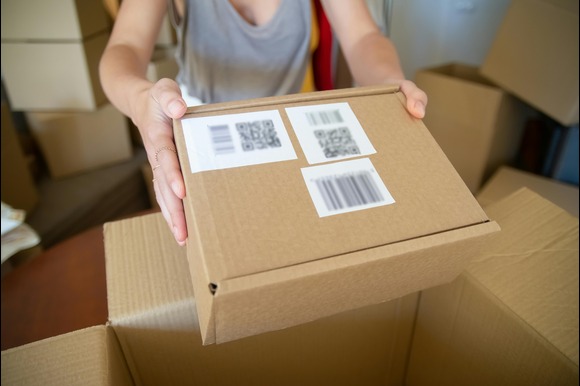Postal services across the globe are halting certain shipments to the United States due to confusion surrounding newly introduced import taxes that will take effect at the end of the month.
President Donald Trump recently signed an executive order eliminating the long-standing global import tax exemption for low-value parcels. The new rules, set to take effect on 29 August, will significantly alter how international packages are handled.
While personal gifts valued under $100 will continue to be duty-free, all other parcels will now be subject to the same tariff rates that apply to other goods from their country of origin.
Major postal services, including Royal Mail in the UK and Germany’s DHL, have announced they are temporarily pausing deliveries to the U.S. until they can implement systems capable of complying with the updated regulations. Royal Mail stated that it would be suspending its existing U.S. export services for businesses beginning Tuesday, but it aims to have a new system in place within 48 hours to resume service before the rules take effect.
“We have been working closely with U.S. authorities and international partners to adapt our services in line with the new U.S. de minimis requirements,” the company said. “This will ensure UK consumers and businesses can continue sending items when the new regulations come into force.”
Royal Mail confirmed that standard letters and cards will continue to be accepted as usual. The United States previously allowed a so-called “de minimis” exemption on parcels worth up to $800, enabling American consumers to order inexpensive goods—especially clothing and household items—from e-commerce platforms such as Shein and Temu without incurring import duties.
However, the exemption for Chinese goods was already removed on 2 May, and the new executive order now extends that removal to packages from all countries.
According to the White House, this move is aimed at cracking down on “rising deceptive shipping practices, illegal materials, and duty evasion.” Officials allege that some foreign shippers have exploited the exemption to smuggle illicit drugs into the country.
The Trump administration said that shipments under the de minimis threshold surged from 115 million in the 2023–24 financial year to 309 million by the end of June 2025. While China has been a primary source of such shipments, the U.S. also receives a significant volume of low-cost parcels from Canada and Mexico.
Deutsche Post and DHL Parcel Germany announced a temporary suspension of parcel deliveries for business customers to the U.S. starting Saturday. The company cited “unresolved questions” about who is responsible for paying duties and how the process would work.
DHL added that it was “closely monitoring ongoing developments” and is actively communicating with U.S. authorities. However, it clarified that shipping via DHL Express remains available during the suspension.
“The company’s goal is to resume shipping of postal goods to the U.S. as quickly as possible,” DHL said in a statement.
PostNord also announced earlier this week that it was suspending services to the United States, pointing out that U.S. authorities only issued detailed guidance about the changes on 15 August.
“This decision is unfortunate but necessary to ensure full compliance with the newly implemented rules,” said Bjorn Bergman, PostNord’s head of group brand and communication.
Online marketplace Etsy also weighed in, announcing it would suspend the purchase of shipping labels for U.S.-bound packages from 25 August. The suspension affects labels from Australia Post, Canada Post, Royal Mail, and Evri, while the couriers update their systems.
“The state of tariffs is evolving, so please be sure to keep an eye on recommendations from your preferred shipping carrier,” Etsy advised sellers.
Trump’s controversial “big beautiful bill,” passed by Congress on 3 July, had originally set the de minimis change to take effect on 1 July 2027. However, a recent executive order accelerated that timeline by two years.
The new regulations do not apply to personal items that U.S. travelers bring home from abroad, provided they are valued at $200 or less. Similarly, gifts valued under $100 remain exempt from duty.






